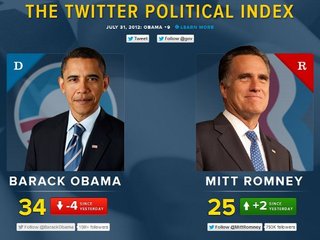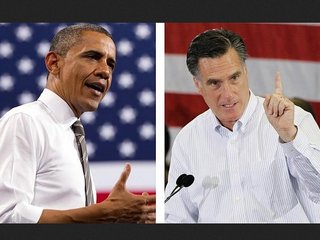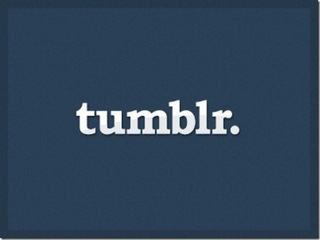The FDA outlines draft guidance on AI for medical devices
The agency also published draft guidance on the use of AI in drug development
Read more...
With just 74 days remaining until Election Day, the campaigns are in full swing and the negative blasts are on full force. Did you know that Obama is a socialist Muslim? And that Romney is an elitist vulture? No? Maybe you should read more headlines.
That’s the focus of a new report released Thursday by the Pew Research Center’s Project for Excellence in Journalism. The report looks at the master narratives that have emerged regarding both of the candidates, as well as the sources and media behind them. The takeaway is that this campaign is highly charged with negativity, and the public is getting a pretty skewed depiction of each candidate.
Interestingly, researchers looked at the narratives surrounding each candidate on the Web and found that online news sites are a mixed bag. One might assume that because the Web democratizes political discourse so that anyone and everyone can have their say—particularly with the help of social media—that the political narratives would originate more from the people themselves, but that isn’t the case.
Of the 12 most prominent news sites in the country, fully 58% of the statements on the record and character of the candidates came directly from the campaigns themselves. That’s the highest of any other medium.
On the flip side, however, the proportion of statements on the candidates coming directly from journalists was also higher on the Web than any other medium at 23%. That’s higher even than newspapers, where only 21% of the statements made about the candidates are coming directly from reporters and journalists.
What we can glean from that is the fact that the Web is still akin to the Wild West—anything goes. Oddly enough, the voices of the voters themselves don’t make up a significant proportion of the statements on the candidates, with only 6% of such statements coming from voters. That’s higher than broadcast media (3%) and cable TV (1%), but less than newspapers (14%).
Interestingly, the release of the Pew report coincides with the recent news that former NPR Capitol Hill reporter Andrea Seabrook—who famously quit last month after claiming that reporting on Congress was little more than parroting back a bunch of spin—has launched a website, DecodeDC, that will feature her blog posts and podcasts on Washington.
“I realized that there is a part of covering Congress, if you’re doing daily coverage, that is actually sort of colluding with the politicians themselves because so much of what I was doing was actually recording and playing what they say or repeating what they say,” said Seabrook, who was a Capitol Hill reporter for 14 years, in an interview with Politico. “And I feel like the real story of Congress right now is very much removed from any of that, from the sort of theater of the policy debate in Congress, and it has become such a complete theater that none of it is real. … I feel like I am, as a reporter in the Capitol, lied to every day, all day.”
Tom Rosenstiel, Director of the Pew Project for Excellence in Journalism, echoed those sentiments:
“The American news media in its coverage of the candidates appears increasingly to be a conduit of partisan rhetoric and less a source than it once was of independent reporting. This may reflect the impact of shrinking newsrooms. But it probably also helps explain why the campaign feels so negative.”
Image source: politico.com
The agency also published draft guidance on the use of AI in drug development
Read more...The biggest focus areas for AI investing are healthcare and biotech
Read more...It will complete and submit forms, and integrate with state benefit systems
Read more...

